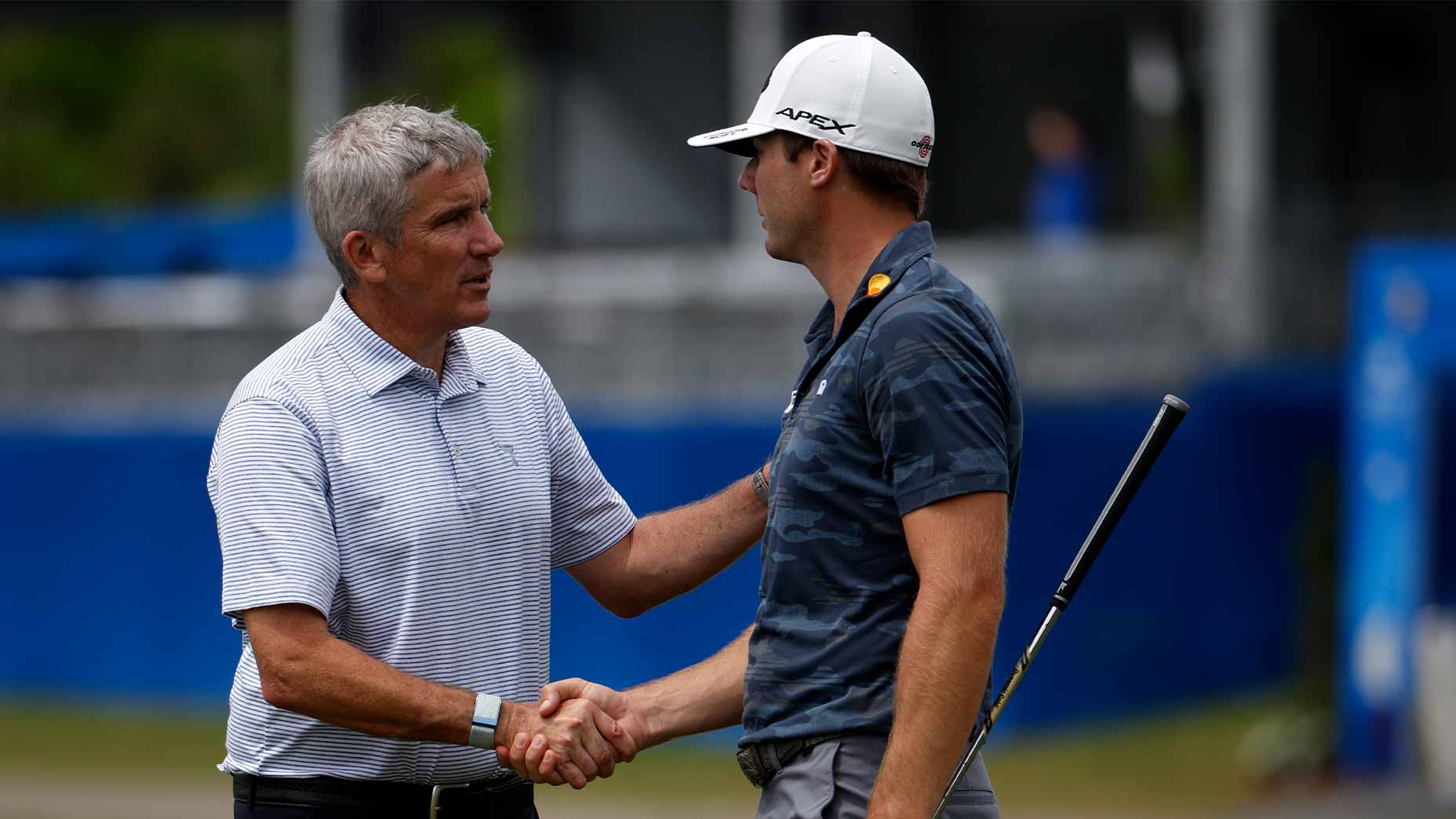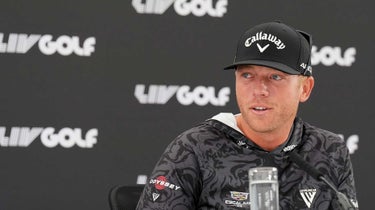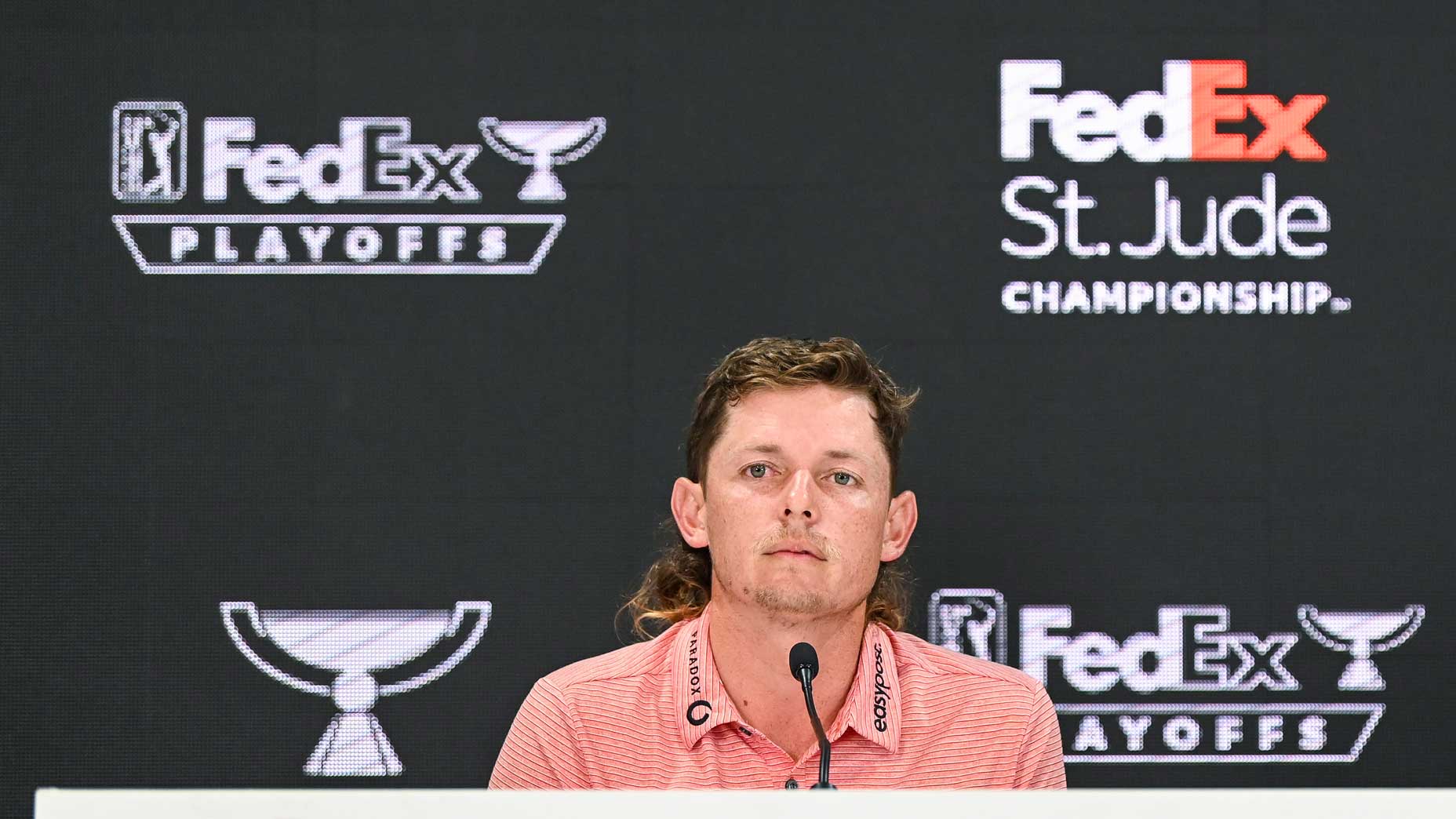
As the LIV lawsuits fade (for now), the PGA Tour can finally look to heal its reputation with the players who have stuck by it, says Notah Begay.
Getty Images
Just as the first shots were fired in golf’s biggest courtroom battle in decades Tuesday afternoon, Sam Burns stepped to the podium at the FedEx St. Jude Championship with a decidedly different message.
“For me, I fully support the PGA Tour 100 percent,” he said curtly. “It was a pretty easy decision for me.”
Burns, who has seen his career earnings and his OWGR ranking skyrocket over the last 24 months on the PGA Tour, wasn’t too interested in the developments playing out in a northern California courtroom a few thousand miles away. It didn’t matter to Burns if Judge Beth Labson Freeman allowed Talor Gooch, Hudson Swafford and Matt Jones to compete in Memphis. It didn’t matter whether the next man on the press conference docket, Cameron Smith, had or hadn’t accepted a $100 million contract from LIV Golf.
Burns didn’t care very much about those things, he said, because they had very little to do with him.
“I mean, everyone that knows me I think knew that I had no intent to ever go anywhere else,” Burns said. “I don’t think people were really surprised.”
Judge Freeman had denied the LIVers’ request to have their suspensions lifted, which would have allowed them to compete in the FedEx Cup Playoffs. However marginally, a slightly larger slice of the Tour’s $75 million FedEx Cup prize belonged to Burns. The decision was good news for the PGA Tour, too, as it successfully defended its suspensions of LIV’s players in its first legal challenge.
Now it’s Wednesday, and Burns’ press conference has faded into obscurity as the Tour prepares, once again, to host the biggest stretch of its season. The first act of the LIV lawsuit is behind us — and a trial is not scheduled until September 2023 — meaning that for the first time in many months, the Tour can make an earnest effort at stepping beyond the fray.
The coming months are a time of uncertainty for the Tour, which has been rocked by defections and antitrust allegations since the start of summer. But they are also a time of opportunity, says former Tour pro and current NBC analyst Notah Begay. A time in which the Tour can stop weathering the storm, and start trying to find a way out of it.
“There’s been a lot of uncertainty from the players that I talked to with regard to, what’s the next step and where do we go from here?” Begay told GOLF. “With the focal point of golf firmly placed on these next three events, the Tour has a chance to reintroduce a fresh look, a different agenda, that is predicated on improving their relationship with their players. I think over the years that has become a little tenuous. I think it has become fractured.”
The fault lines in the relationship between Tour players and Tour brass haven’t been hard to find over the last few months. After an onslaught of defections, it feels as though golf’s biggest professional tour is divided between those who are deeply committed to it — like Burns, among others — and those who are on their way out the door.
“Everybody knew that it was going to come down to whatever determination the courts were going to make with regard to this entire situation,” Begay said. “I don’t think there’s a whole lot of animosity amongst the players that stay committed to the PGA Tour versus the players that left. I think there’s a lot more certainty with regard to as, as things have clarified, moving forward for the Tour and what they’re going to be able to do.”
As for what changes could be coming, Begay pointed to the group of ascendant stars who have remained fiercely loyal to the Tour over the last several months. It is time, he says, for the Tour to reward that loyalty.
“I think the Tour needs to be very appreciative for the number of players that have been very loyal and supportive of maintaining and keeping the organization as a priority in their career,” he said. “A lot of these players are being faced with decisions that financially, they’ve never even contemplated. It’s different than other sports.”
Some have argued that the PGA Tour’s best players should be rewarded for their loyalty with guaranteed salaries. Others have pushed for more systemic changes, like the Fall Series that is likely to be adopted by the PGA Tour in 2024.
“I think that the [not guaranteed nature of pro golf] is what makes our game hard, but that’s what makes it inherently unique,” Begay said. “That’s what gives a platform to a guy like Tom Kim to come in there, shoot 27 on the front nine and close the golf tournament out with an hour left because he put together such a wonderful round that there was no way he was going to be caught. That’s what makes our game special.”
In either case, Begay says, change is here in the world of professional golf. But over the next few weeks, the PGA Tour has the opportunity to show that some things are just as they’ve always been.









